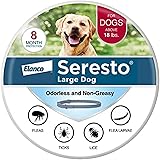In the realm of canine nutrition, the debate between kibble and fresh food diets is a hot topic among pet owners and veterinarians alike. While kibble has been the conventional choice for its convenience and long shelf life, the trend is shifting towards fresh, non-kibble diets for dogs. This approach to feeding emphasizes whole, minimally processed foods, mirroring a more natural diet and offering numerous health benefits that can enhance a dog’s quality of life.
Nutritional Benefits
Fresh, non-kibble diets are typically rich in high-quality proteins, vegetables, and healthy fats, providing a balanced spectrum of essential nutrients. Unlike many kibbles that rely on fillers and artificial additives for bulk and flavor, fresh diets focus on natural ingredients that are more easily digestible and nutrient-dense. This can lead to improved digestion, as natural enzymes and fibers in fresh foods help maintain gut health.
Moreover, the higher moisture content in fresh foods is beneficial for hydration, particularly for dogs that may not drink enough water, reducing the risk of urinary tract infections and kidney stones. The bioavailability of vitamins and minerals in fresh, whole foods is often superior, supporting everything from a healthy immune system to vibrant skin and coat health.
Customization and Variety
A significant advantage of a fresh food diet is the ability to customize meals to meet the specific nutritional needs and preferences of your dog. Dogs with allergies, sensitivities, or specific health issues can greatly benefit from tailored diets that eliminate problematic ingredients. Furthermore, the variety offered by rotating different proteins and vegetables can prevent food boredom and ensure a wide range of nutrients, promoting a more balanced diet.
Weight Management and Longevity
Fresh diets can also play a crucial role in weight management. With fewer empty calories and more substantive, nourishing ingredients, it’s easier to maintain a healthy weight, thus avoiding obesity-related health issues such as diabetes, arthritis, and heart disease. The quality of life and longevity of dogs can significantly improve with a diet that supports optimal body condition and health.
Disease Prevention
Feeding a fresh, non-kibble diet may contribute to a lower risk of developing certain chronic diseases. Natural diets are linked to lower incidences of diseases such as diabetes, cancer, and heart disease. The absence of preservatives and artificial ingredients reduces the toxic load on a dog’s body, potentially leading to a stronger immune system and a reduced risk of disease.
Considerations
While the benefits of a fresh, non-kibble diet are compelling, there are considerations to keep in mind. Transitioning to a fresh food diet requires a commitment to planning and preparation, ensuring that the diet is balanced and meets all of your dog’s nutritional needs. Consulting with a veterinarian or a canine nutritionist is essential to avoid nutrient deficiencies or excesses.
Additionally, the cost of a fresh food diet can be higher than traditional kibble. However, many pet owners find that the investment in their dog’s health is worth the potential savings in veterinary bills over the pet’s lifetime.
In conclusion, feeding your dog a fresh, non-kibble diet can have profound benefits on their health, vitality, and lifespan. By choosing whole, minimally processed foods, you’re providing your pet with the highest quality nutrition, tailored to their specific needs. With careful planning and consultation with veterinary professionals, a fresh food diet can be a rewarding way to nourish your best friend for years to come.
























